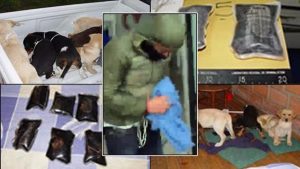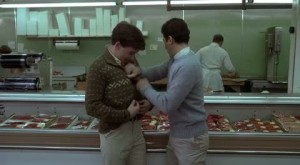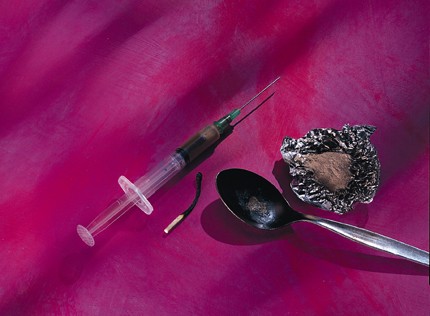Jackie Botts of Reuters writes that a Colombian veterinarian who surgically implanted liquid heroin inside live puppies to smuggle the drug into the United States was sentenced to six years in prison on Thursday.
 Andres Lopez Elorez, 39, admitted conspiring to import heroin and will be deported to Colombia after his sentence, according to federal prosecutors in Brooklyn, New York.
Andres Lopez Elorez, 39, admitted conspiring to import heroin and will be deported to Colombia after his sentence, according to federal prosecutors in Brooklyn, New York.
“Every dog has its day, and with today’s sentence, Elorez has been held responsible for the reprehensible use of his veterinary skills to conceal heroin inside puppies as part of a scheme to import dangerous narcotics into the United States,” Richard Donoghue, U.S. Attorney for the Eastern District of New York, said in a statement.
According to prosecutors, between 2004 and 2005 Elorez leased a farm in Medellin, Colombia, where he reared dogs and sewed bags of liquid heroin into nine puppies for importation to the United States.
During a search of the farm in 2005, foreign law enforcement agents seized 17 bags of liquid heroin weighing nearly three kilograms (6.6 lb), including 10 bags extracted from the puppies. Three puppies died after contracting a virus following the surgeries, U.S. prosecutors said.







 Growing up, my brother
Growing up, my brother 
 My bother Jesse (currently a third grader) found a hero in Spiderman.
My bother Jesse (currently a third grader) found a hero in Spiderman.
 In 2001, there were a total of 108 cases – 60 in Scotland, including 50 in Glasgow, 26 in England and 22 in Dublin, including 43 deaths.
In 2001, there were a total of 108 cases – 60 in Scotland, including 50 in Glasgow, 26 in England and 22 in Dublin, including 43 deaths.